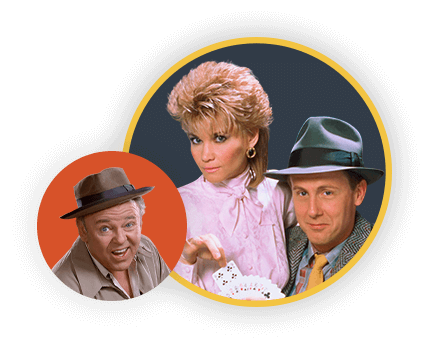
Image: AP Photo
When it came to breaking news to the American public, nobody did it quite like Walter Cronkite. Long before the internet, “The Most Trusted Man in America” was the one informing the nation of every groundbreaking event of the 1960s and 1970s on the CBS Evening News… and there were a lot of them.
Positive or negative, Cronkite had a real knack for getting the story to the people in a way unlike anything they’d heard before, and that’s the way it was. There were countless memorable reports given by Cronkite in the nearly 20 years that he worked at CBS, but here are five that nobody ever forgot.

The JFK assassination
A year and a half into his tenure at CBS, Cronkite had to report one of the biggest stories of his lifetime - the assassination of President John F. Kennedy. Though Kennedy’s condition was unknown at the time, Cronkite knew CBS had to be the first to break the news. At 1:40 pm ET, Cronkite reported a voiceover, telling the country that the president had been shot, because the studio didn’t have a camera ready to broadcast. When Kennedy died, Cronkite was the first to report it 38 minutes later.
When the camera was ready to broadcast, Cronkite’s report on the president’s death was emotional, despite his attempts to maintain his composure. “If Walter had had his choice, he would have suppressed those tears,” CBS reporter Andy Rooney told NPR. “Because he hated to reveal himself as an emotional person.”
Image: Wikimedia Commons

The Vietnam War
It’s been long believed that reporters are there to deliver the news and keep their opinions out of it. While editorializing is typically frowned upon when it comes to keeping news objective. However, when Cronkite went to Vietnam to cover the Tet offensive, he was unable to stay silent. He delivered one of the first biased, albeit poised and professional newscasts in February 1968 when he got home. He read an editorial written by his executive producer Ernest Leiser.
"To say that we are closer to victory today is to believe, in the face of the evidence, the optimists who have been wrong in the past," he said. "But it is increasingly clear to this reporter that the only rational way out then will be to negotiate, not as victors, but as an honorable people who lived up to their pledge to defend democracy, and did the best they could."
President Lyndon Johnson recognized the gravity of a reporter like Cronkite speaking out, saying, “If I’ve lost Cronkite, I’ve lost middle America.”
Image: Wikimedia Commons

The Democratic National Convention
Is there a more notorious convention than the Democratic National Convention of 1968? This convention was held at a tense time in American politics following the assassination of Senator Robert F. Kennedy and the DNC was welcomed with protests and riots that took place outside of the convention as well as in cities across the nation.
Cronkite reported on the convention from Chicago, alongside eventual successor Dan Rather. Chicago mayor Richard Daley ensured there was plenty of security to ensure attendees were safe from protestors, but according to Variety, Cronkite later stated that the security team was there to “keep peace that would best serve Daley’s agenda.” Security later turned on the press as well and Rather was shoved by guards as he tried to speak to a Georgia delegate. In the midst of the chaotic report, Cronkite’s mic picked him up saying, “I think we’ve got a bunch of thugs here, Dan.”
Image: AP Photo

The moon landing
Cronkite had to report a lot of negative news to the nation, but in 1969, he got to report the story of a lifetime. America had finally won the Space Race and Neil Armstrong walked on the moon. Cronkite was a pretty stoic reporter most of the time, but struggled to keep a straight face as he spoke in awe of what the country had accomplished. Cronkite would later say that this was the most extraordinary story he ever got to tell, and he struggled for the words to describe it.
He simply opened with, “Oh boy! Whew! Boy,” which summed up the reaction of America.
Image: The New York Times

The Watergate scandal
The Watergate scandal is one of the strangest events in political history, due to the fact that despite it leading to the resignation of a president, it wasn’t taken seriously at first. It seemed like a clumsy caper that would soon fade from the public eye if the Nixon administration had anything to say about it. However, Cronkite didn’t see it that way. The story was loosely covered by the media in the days following, but didn’t gain much traction until Cronkite brought it to the forefront of America’s consciousness.
While most stories on the Evening News got two minutes of coverage, Cronkite dedicated 14 minutes of Oct. 27th’s broadcast to informing the public of the “high-level campaign of political sabotage and espionage apparently unparalleled in American history.” Though this wasn’t breaking news, Cronkite did break the gravity of the situation.
Image: The New York Times




